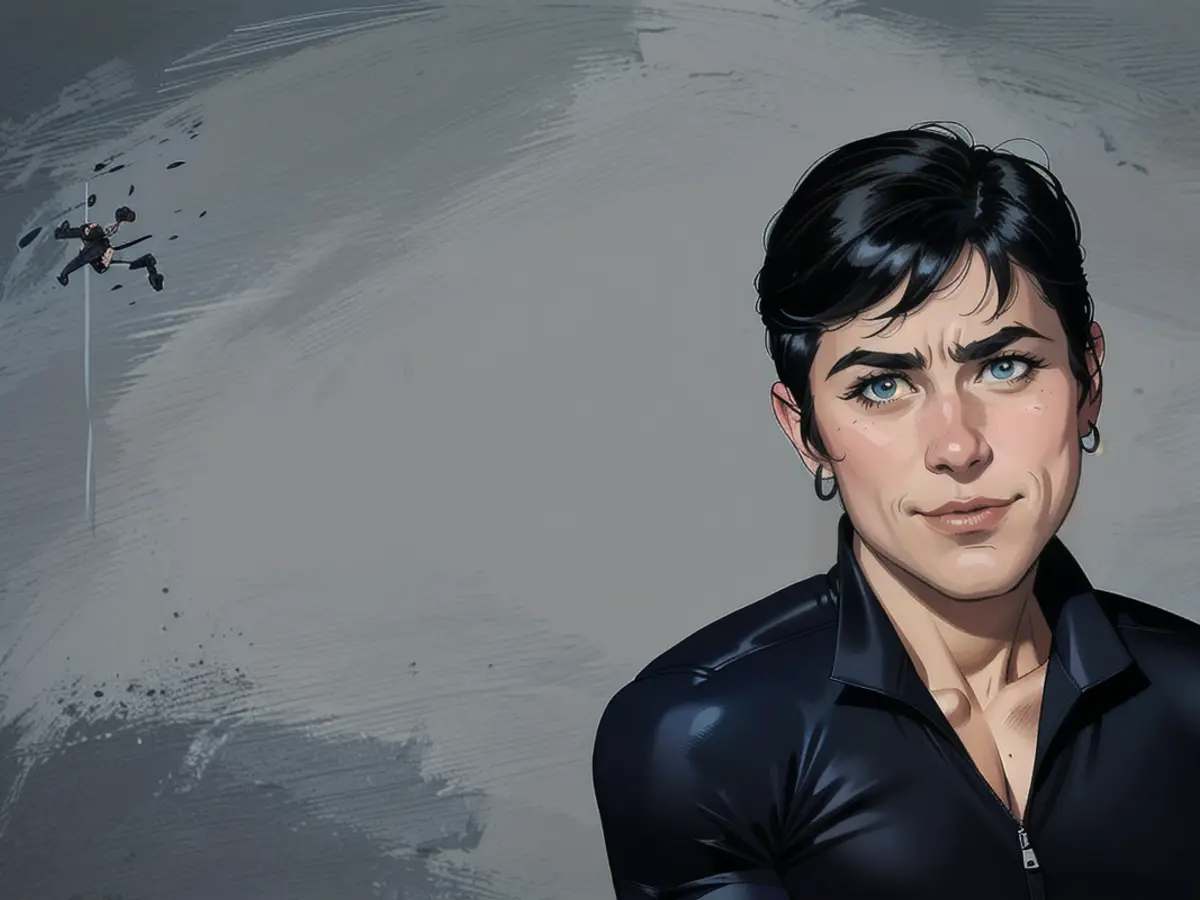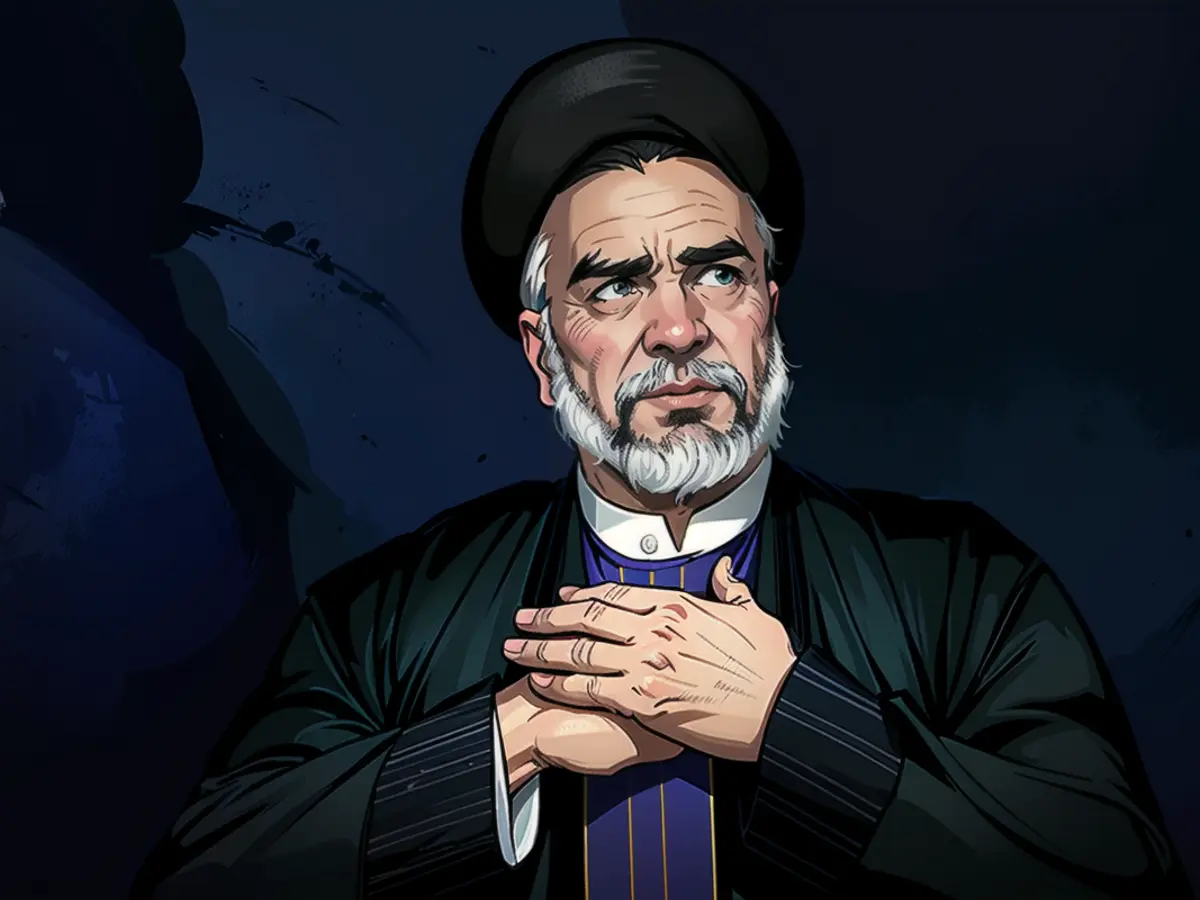Opinion: Iran's president has passed away, triggering a fierce contest for power.
Every so often, festive fireworks arched up into the sky, a grim reminder that Raisi, the one who rules the Islamic Republic of Iran with increasing brutality, is detested by numerous segments of its residents.
On social media, Iranian youth cheered when it was confirmed that Raisi, along with Foreign Minister Hossein Amir Abdollahian and other hardliners, could soon be dead. These enforcers had crushed their freedom.
In the forthcoming weeks, months, and beyond, Iran's elite will engage in fierce fighting for power as the country chooses a new president - Iran's second most powerful position - and determines who will become the next supreme leader, the individual who will succeed Ali Khamenei and gain ultimate authority.
Raisi, a dedicated follower of Khamenei, was a top contender for that position. His demise not only leaves the No. 2 role vacant but also disrupts the contest for the top spot.
This significant battle over the fate of Iran and its potential leader for years or even decades ahead, is of great interest to many millions of Iranians, including possibly a majority, who will have no voice, no representative for their viewpoints.
This critical moment of internal change occurs when the Middle East is on edge as Israel and Hamas face-off in Gaza. Hamas, one of Iran's proxies, is receiving support from other militant groups connected to Iran - Hezbollah in Lebanon and the Houthis in Yemen - all of whom oppose Israel's existence. With worries that the conflict in Gaza could escalate into a regional war, Iran is a crucial player.
Recently, Iran had its first direct clash with Israel, launching rockets and missiles after Israel attacked its embassy complex in Damascus. The world held its breath as these two regional powers clashed. The clash eventually died down without further escalation.
Iran also plays a key role in Russia's war against Ukraine, providing the Kremlin with large amounts of military drones they've used on Ukrainian citizens. Iran's now part of a new bloc of anti-Western nations that include Russia, China, and North Korea.
The shifting power in Tehran draws attention from Saudi Arabia, Iran's longstanding rival.
However, the power struggle will unfold mostly inside Iran, impacting the nation most directly.
The internal political games seldom promise any significant change in Iran's stance towards the West or its own people.
Most likely, it will be clerics and security forces - the military and the Islamic Revolutionary Guard Corps (IRGC) - competing to see who can gain the upper hand, with hardcore members of both factions aiming for dominance.
The chances of a kinder, gentler Iran emerging after the upcoming presidential elections are nearly nonexistent. Moderates, reformers, liberals, and democracy supporters have gradually lost their influence within the regime.
Iran's claim of democratic legitimacy within its mixed clerical and elected rule evaporated after the rigged 2021 election that installed Raisi.
Once upon a time, Iranian elections - although limited - held some truth. Sometimes, a reformer would be elected. That's not happening anymore. Raisi ran in 2017 and lost. In 2021, the regime disqualified nearly everyone but seven out of the nearly 600 prospective candidates, leaving only Raisi in a noncompetitive race, ensuring that Khamenei's chosen one would win.
Despite this, Iranians made their feelings known. He won, yet many spoiled their ballots or stayed home, resulting in the most meager turnout in the history of the Islamic Republic.
The electorate knew who Raisi was. Back in the revolution's early days, he helped send thousands of political prisoners to their deaths as part of the so-called "death commissions" in 1988. He gave prisoners two options: clear minefields for the Army, or be executed. Those who refused were murdered.
After the 2009 elections, where a reformist was widely believed to have triumphed but was denied victory by the regime, Raisi played a role in the brutal crackdown against protesters during the so-called Green Movement.
Later, he assumed leadership of the judiciary, tightening restrictions and spearheading a brutal repression of the 2019 pro-democracy, anti-regime demonstrations.
The US sanctioned him for his role in the regime's domestic and foreign oppression.
In 2021, he was installed as president. When Mahsa Amini died after being arrested by the religious police for an insufficiently modest head covering, a new uprising broke out across the country.
Raisi presided over the crackdown against peaceful protests, drawing international condemnation for what human rights groups described as a "tsunami of torture" with tens of thousands detained and hundreds executed arbitrarily.
Now Raisi is gone and it's likely someone else just as stern will take his place.
For those Iranians who rejoiced at his passing, with no say in the direction of their nation, the solace lies in the fact that no regime remains eternal. Their revolution may have been put on hold, but it hasn't been scrapped.

Read also:
- This will change in December
- Dikes withstand water masses so far - Scholz holds out the prospect of help
- Fireworks and parties ring in 2024 - turn of the year overshadowed by conflicts
- Attacks on ships in the Red Sea: shipping companies avoid important trade route
In the ongoing power struggle, various factions within Iran's elite will present their opposing opinions on who should succeed Raisi as the next president and supreme leader.
Despite the widespread hatred towards Raisi and his regime, many Iranians feel powerless to influence the country's political decisions and represent their opinions effectively.
Source: edition.cnn.com







